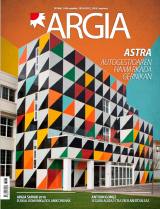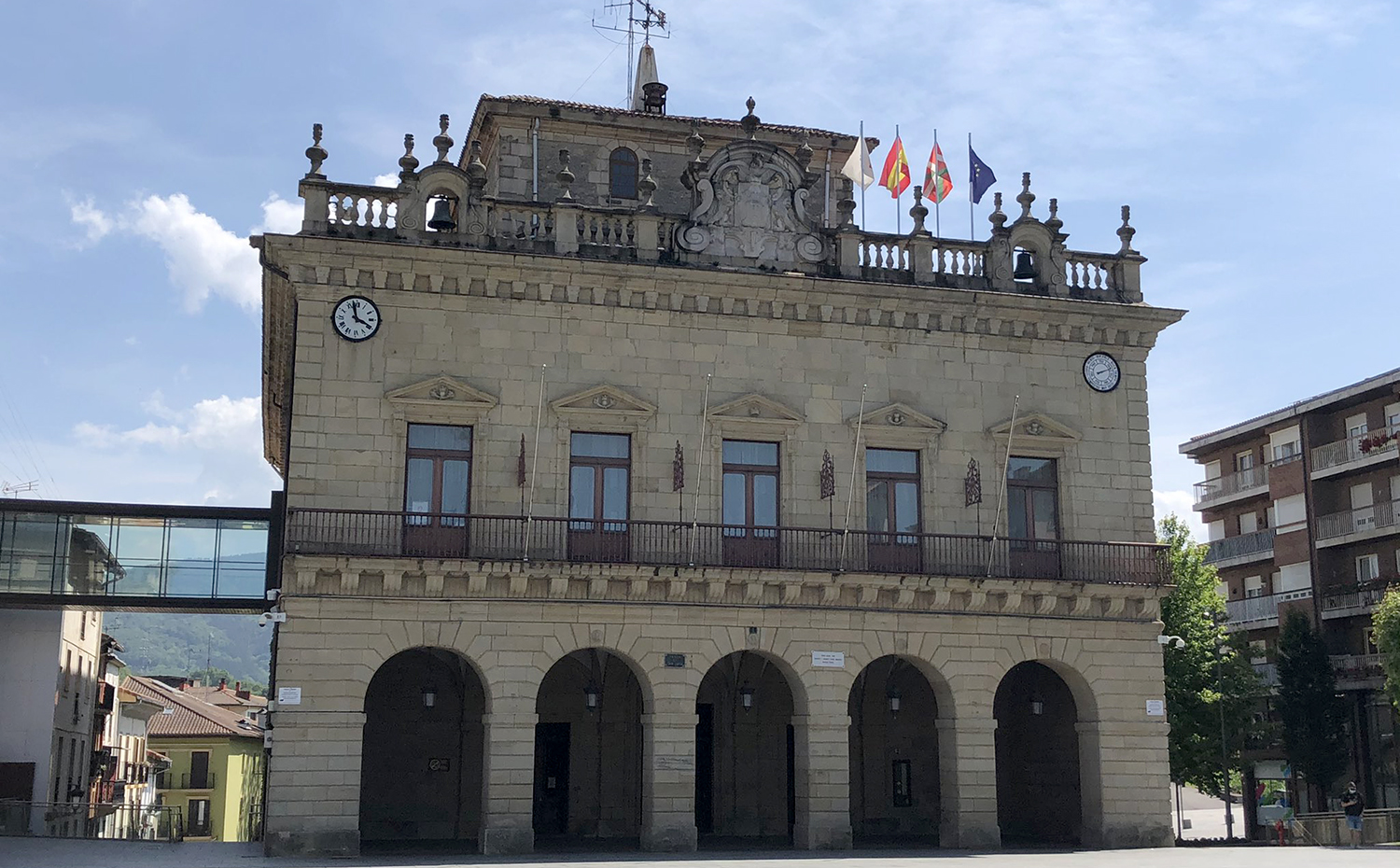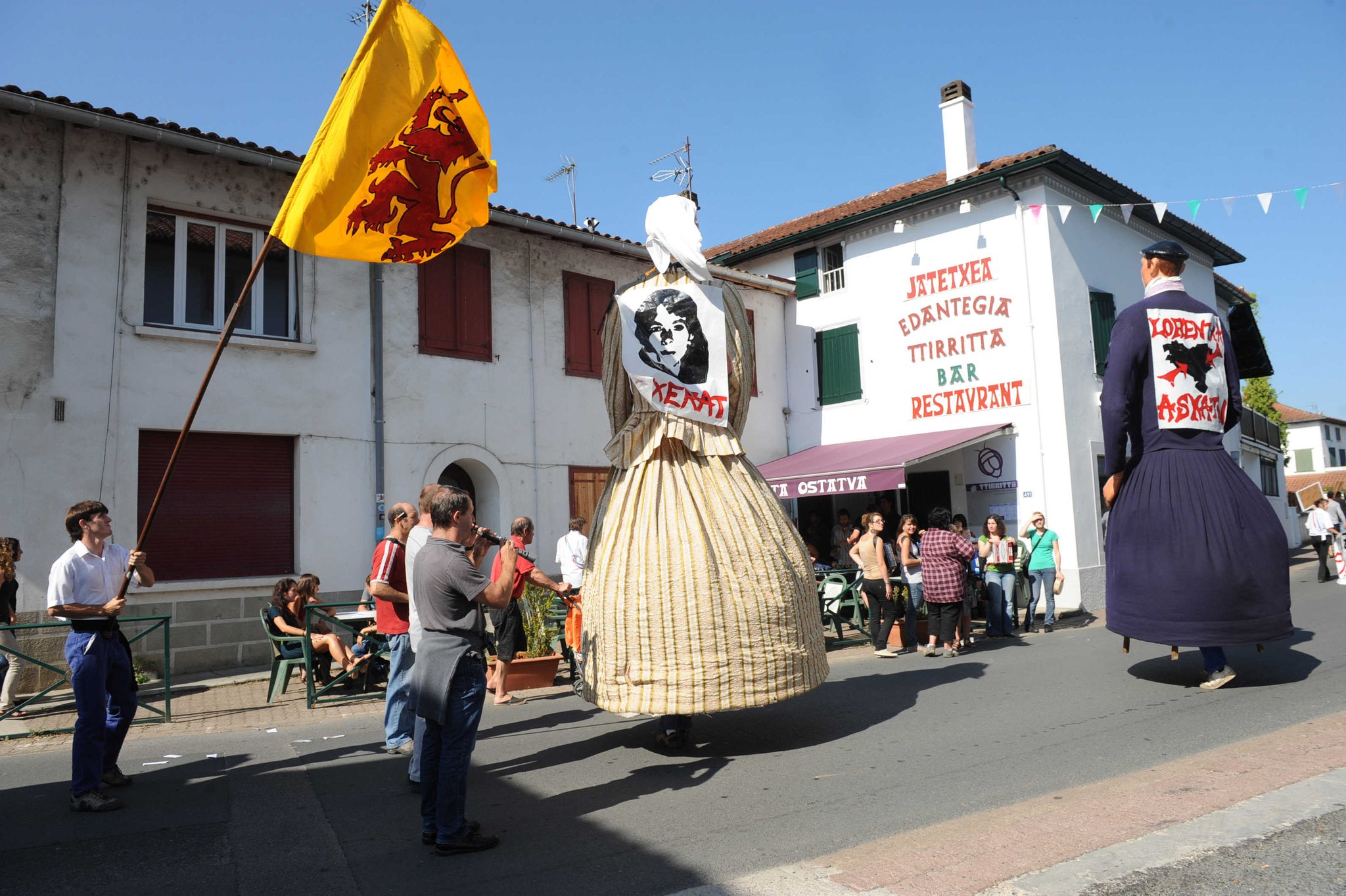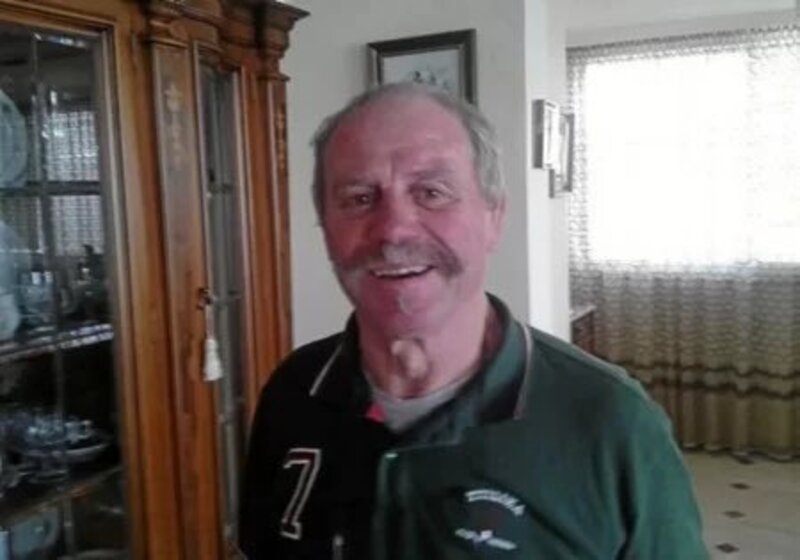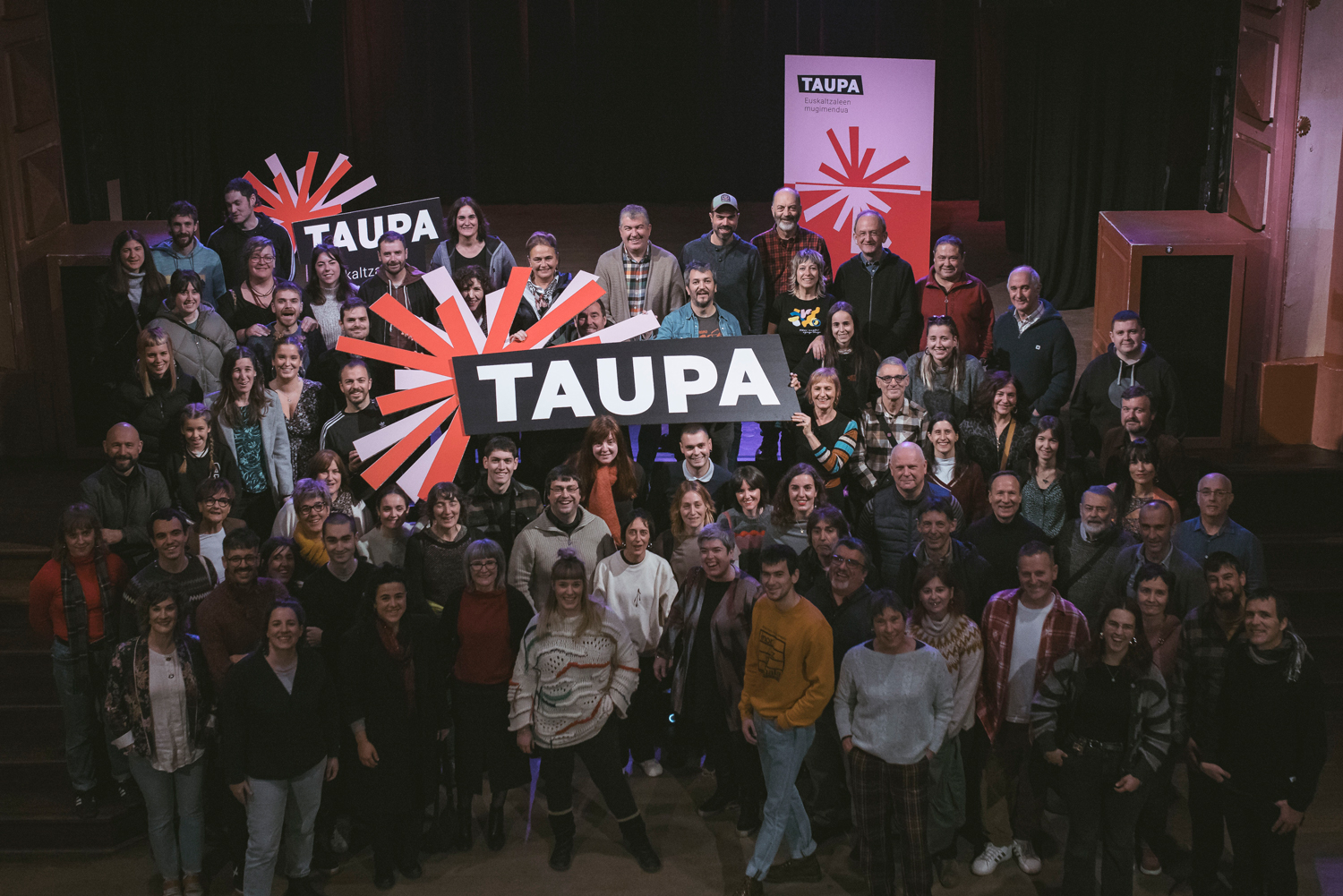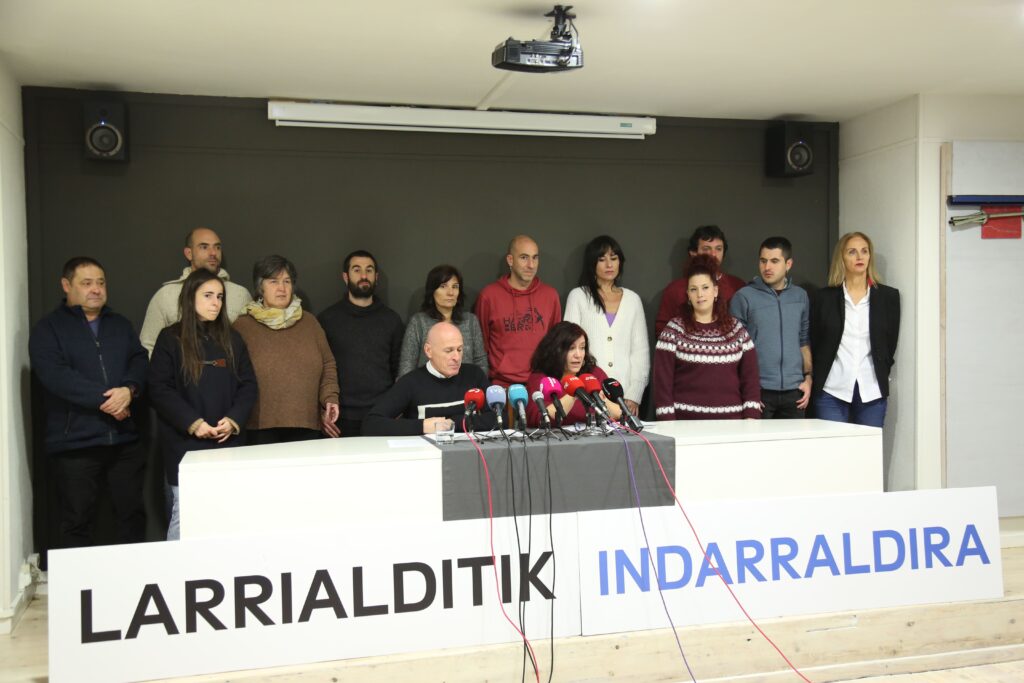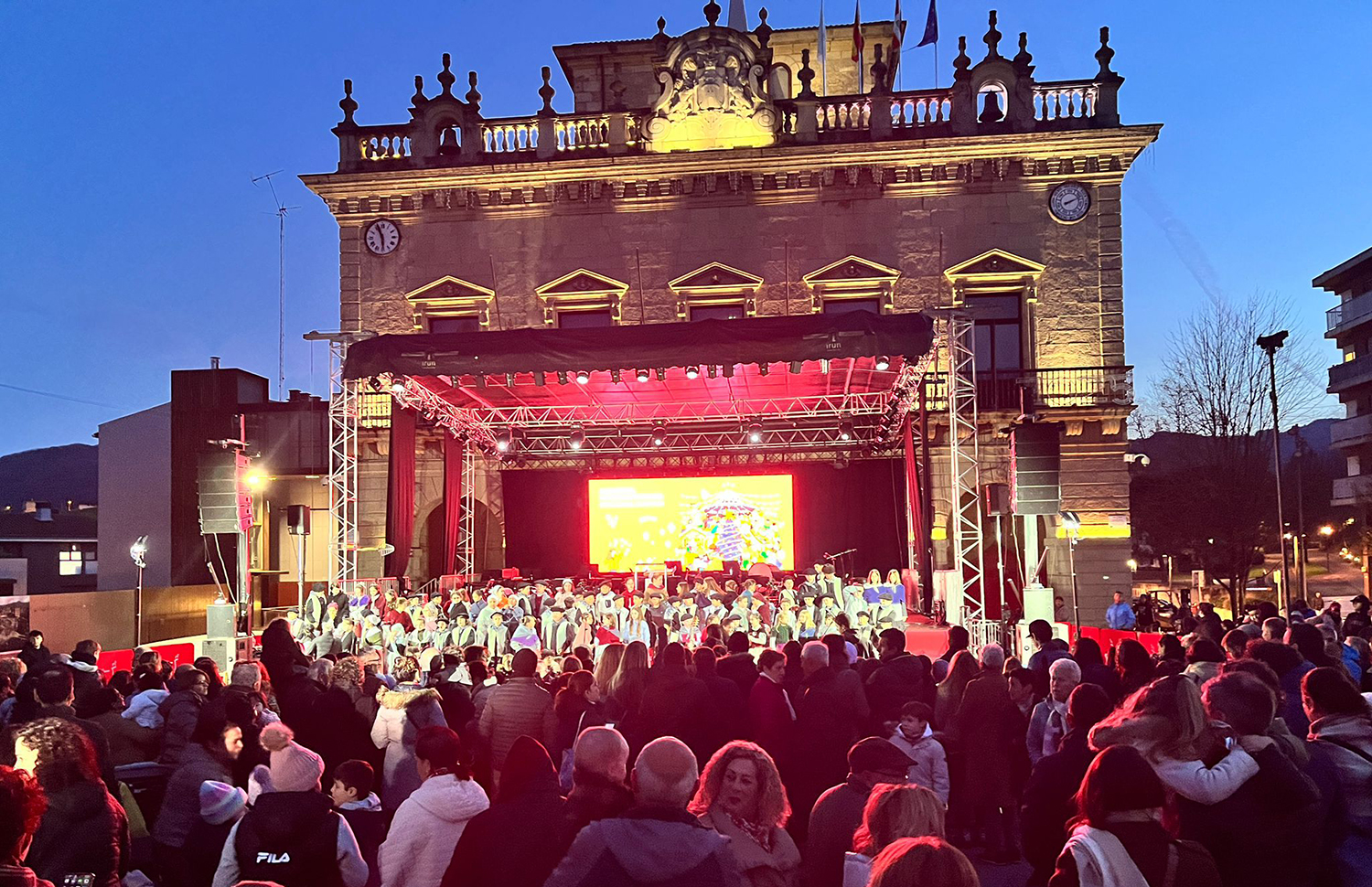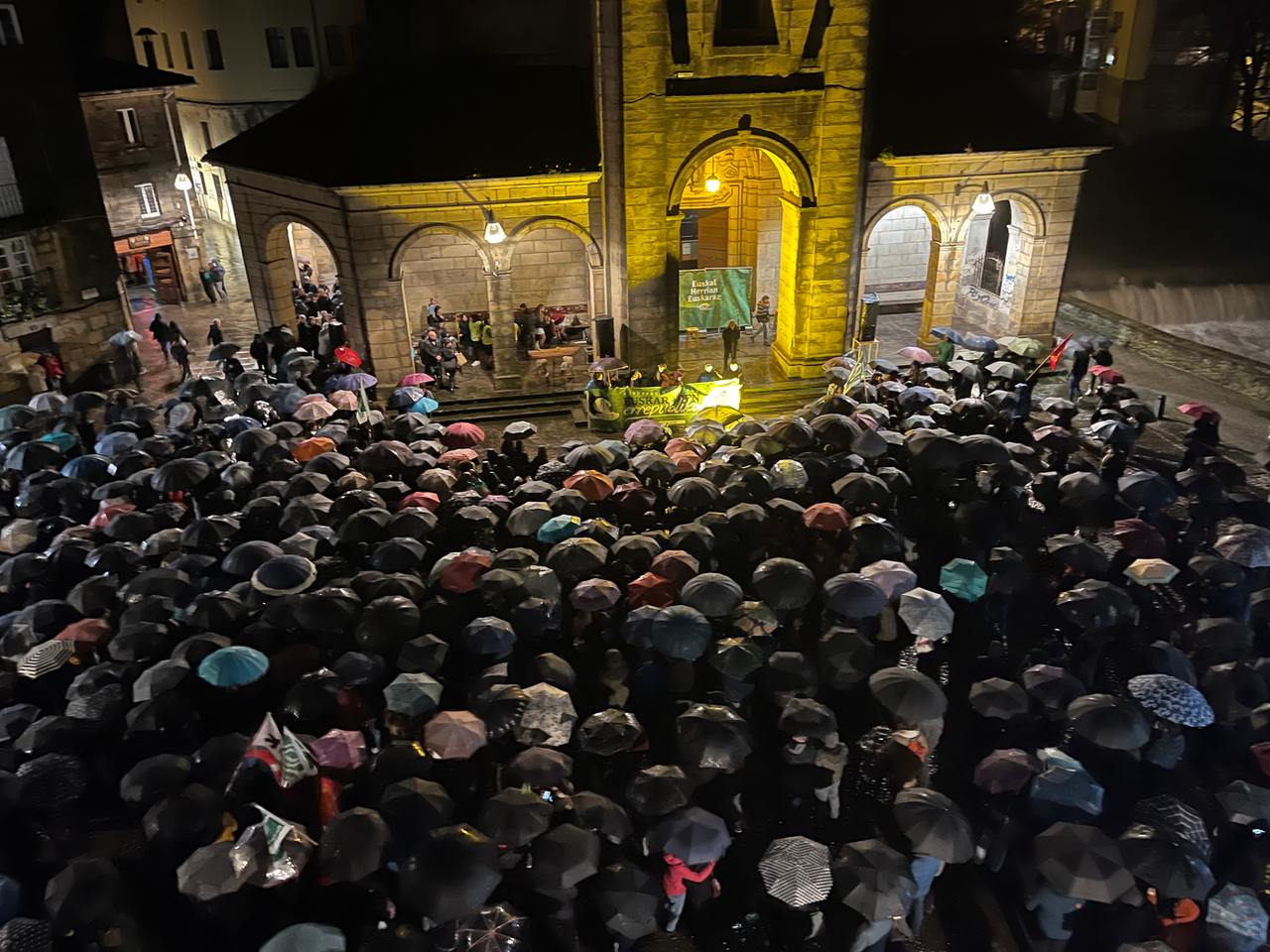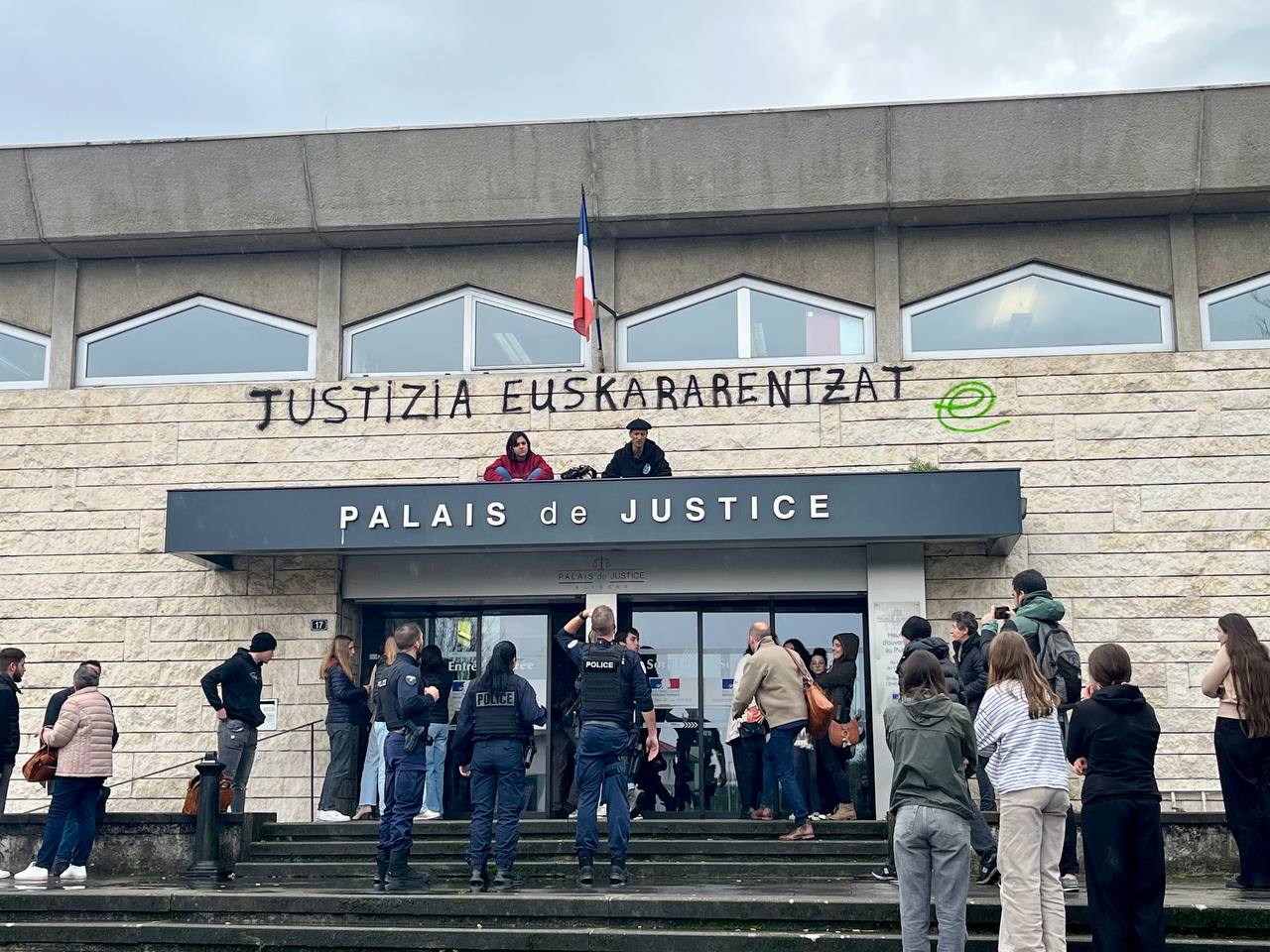The consequence of the Egiatarras: Can be done in Basque with more than expected
- Eñaut Beloki, Maddi Ezkurdia and Itziar Redondo live in the Donostiarra district of Egia. For a week, they pledged to live in Basque from morning to night, and they've tried. They have more positive experiences than pessimists. They are not the only ones who have participated in the experience. Through the Egian Euskaraz Bizi Nahi Dugu initiative, between 8 January and 4 March, dozens of citizens of Egia will participate.
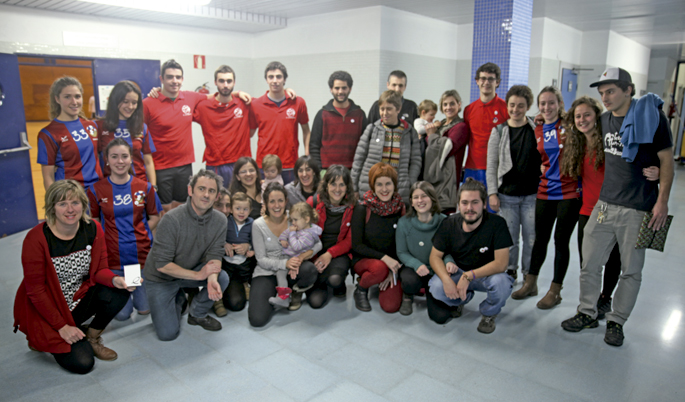
Eñaut Beloki, member of the neighbourhood association Egia Bizirik: “On the first day of the initiative I thought of speaking in Basque with my colleague”
What did the week look like?
It has gone well, I have drawn positive conclusions. I've realized that I live in a pretty Euskaldun environment and I've made an effort to get closer to the Castilian speaking area, for example, at work. The initiative has served me to change the chip, to think about how I should behave in every situation, to raise awareness. More than an effort, if you do it as a group, the initiative comes to life. I'm very comfortable.
In the Vascophony area you will have walked as always. How about at work?
I drive to work with a colleague and have had my first experience in the language with him. On the first day of the initiative, I thought I would speak to him in Basque. I spoke to him in Basque and he in Spanish. I realized I understood everything, I understood it perfectly. In the company we have an Euskera plan and it is one of those who have begun to learn Euskera.
Didn't you tell her why you started talking about everything in Basque from one day to the next?
I told him on Tuesday. I explained the initiative to him and asked him if he cared that I would speak to him in Basque: “No, no,” he replied, “to the extent that I understand you there is no problem, yes, I will answer you in Spanish.”
Did you find it strange that you had conversations in two languages?
A little bit yes. It seemed to me that vitality was lost, lack of salt. Perhaps the habit is missing. For the rest, I felt good and I do not think she felt uncomfortable.
The week has passed. Will you continue to speak in Basque with your partner?
Yes, I will try. I have had the opportunity to do the same test with another colleague, but I have not dared. I have the impression that he does not like it so much and the truth is that I have not tried it with him. Perhaps, instead of starting in Basque the next time, I will inform you about the initiative, to see what it says to me.
How do they act in the neighborhood association itself?
We are a few 40 years old and the rest are more mature. By the time I arrived, most were spoken in Spanish. Today the writing is done in bilingual, and some things in Basque. The meetings were always held in Spanish. Now they are made in Basque and who does not understand in Basque the translator whispers. That is not always the case. If the Castilian speaker takes the floor, he sometimes does not realize and answer in Spanish, and we all end up doing it in Spanish.
In the partnership we are thinking about what we can contribute as a group to this initiative and perhaps it is time to make a decalogue so that the association does not keep the linguistic issues in the air.
Maddi Ezkurdia, member of the Trebeska dance group: “I hoped they would answer me in Spanish and I’ve received surprises”
She works at the inn. How did you fix this week?
My partner is my partner, therefore in Basque. The clients come from outside, and if the Basque did not come, he could not speak in Euskera. However, I liked a situation. A Catalan came to me and made me the first word in Catalan. He asked me for forgiveness and I told him that I understood everything and that I cared. I realized that many times the first word comes to us in Spanish, and the first word came to him involuntarily in Catalan. We go to the store and we say: “I will make the first word in Spanish to simplify it, but if you do it in Basque you will know whether you know it or not.”
In Euskera I settle them better than in Spanish and in Euskal Herria I get in stores and I do it in Euskera. Yesterday, for example, I left a store to leave the cart, it was raining and someone told me, “Even that cart is not wet,” and I said, “I just got it and it’s wet.” Then he answered me in Basque.
How did you fix yourself in the stores?
I expected them to answer me in Spanish and I've received surprises.
Good surprises?
Yes. One day I went to buy a gift, I was in three stores and in all three of them knew Euskera (although among the co-workers they did it in Spanish). It has happened to me on more than one occasion that in these places everything has been done in Spanish. I was surprised, and I was happy.
In the dance group?
I've been with children for many years, and meetings with parents have always been done in Basque. In the end, we ask them whether they have not understood anything, whether something needs to be explained in Spanish or not. We have never had any problems.
The week is over. Will you continue to keep the Basque?
We in the group of dances have said that the week is over but that we want to stay the same, both those in the group and the other groups participating in the initiative.
Itziar Redondo, member of Haurgune: “I think people were going to get a lot of positive surprises in this essay.”
We talked before the weekend try ends, but you already have some sensations.
I conducted the TELP course and the truth is that I thought I had already taken into account the recommendations, the approaches made there and the prejudices exposed and brought them to practice.
Do you have an Euskaldun environment?
I am a professor of ikastola, I speak Basque with my family, I speak life in Basque. I think I have some internalized things. For example, I do the first word in Basque. I don’t speak Basque, but I also speak to those known to understand Basque.
Do you have bilingual conversations?
With known people, yes. I feel at ease, I guess the other feels like this too, I've never been told anything. The challenge I have set myself this week has been to speak in Basque also with the strangers, that is, with those who understand but do not speak in Basque.
And did you have a chance?
Yes, twice. In store: “Do you want a bag?” “Yes, give me four please,” “Do you have Eroski’s card?” “Yes, take.” By bus: “Do you give the ticket for the child?” “What?” and I pointed out to the child and asked him for the card again. I talked to him with gestures and smiling. He didn't put me in a good face and gave me a friendly expression.
In other words, smiling is a strategy.
At TELP, we talked about that. There are often times of tension, you can get angry in those situations, the negotiation can get worse. It's always better to smile.
What valuation would you make?
It has not cost me much, because I live in an Euskaldun environment and I have always been on the go, but I would say that I have done a more conscious exercise. I think people were going to get a lot of positive surprises in this attempt. More people than we think know Euskera, or understand it. We have biases. Once we have crossed three words with a neighbor in Spanish, we have realized that he will not know Euskera and then he has had the opportunity to know himself and… he knows or understands.
Gabonetako argiak pizteko ekitaldia espainolez egin izanak, Irungo euskaldunak haserretzeaz harago, Aski Da! mugimendua abiatu zuen: herriko 40 elkarteren indarrak batuta, Irungo udal gobernuarekin bildu dira orain, alkatea eta Euskara zinegotzia tarteko, herriko eragileak... [+]
We Basques move our feet behind the witness of Korrika to proclaim that we want to survive as a Basque people in favor of our language, with the aim of the Basque Country we desire.
The tipi-tapa is the first step taken by a migrant person who leaves his homeland in Africa,... [+]
Euskaraldia comes back. Apparently, it will be in the spring of next year. They have already presented it and the truth is that it has surprised me; not Euskaraldia himself, but his motto: We'll do it by moving around.
The first time I have read or heard it, the title of the... [+]









